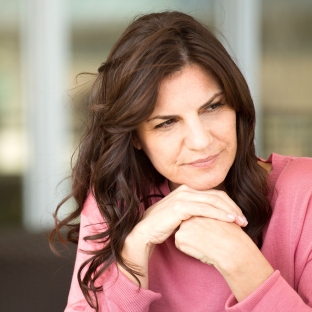Menopause and your hair
-

-
 Reflections Hair
Reflections Hair
Hair changes during menopause are common due to hormonal fluctuations. Many women experience thinning hair, dryness, and dullness. While there is no guaranteed solution to reverse these changes, there are several strategies and treatments that may help improve the condition and appearance of your hair during menopause. Here are some suggestions:
Maintain a Healthy Diet: Consume a well-balanced diet rich in vitamins, minerals, and proteins. Include foods like fruits, vegetables, whole grains, lean meats, and fatty fish, which provide essential nutrients for hair health.
Hair Care Routine: Adjust your hair care routine to address the specific needs of your hair during menopause. Use gentle, sulfate-free shampoos and conditioners formulated for thinning or aging hair.
Regular Trims: Get regular hair trims to minimize the appearance of thinning hair and split ends. Trimming your hair regularly can also help maintain its overall health.
Hairstyling Techniques: Experiment with different hairstyles and techniques that add volume and fullness to your hair. Avoid pulling your hair tightly or using hairstyles that cause tension on the hair follicles, as this can contribute to hair breakage.
Avoid Overwashing: Washing your hair every day can strip away natural oils, making your hair drier and more brittle. Consider washing your hair every other day or as needed to maintain its cleanliness without excessive drying.
Moisturise and Protect: Use a moisturising conditioner after shampooing to help hydrate and nourish your hair. Apply a leave-in conditioner or serum to protect your hair from heat damage and add shine.
Scalp Care: Pay attention to your scalp health. Regularly massage your scalp to promote blood circulation, which can stimulate hair growth.
Supplements: Consult with your GP about supplements that may support hair health during menopause. Biotin, vitamin D, vitamin E, and omega-3 fatty acids are some nutrients that may be beneficial.
Ask your Stylist: If you’re experiencing significant hair loss or have concerns about your hair during menopause, speak to your Stylist. They can assess your hair and scalp health and recommend appropriate treatments or medications.
Remember, everyone’s experience with menopause and its effects on hair is unique. It’s essential to consult with healthcare professionals who can provide personalised advice based on your specific situation.
